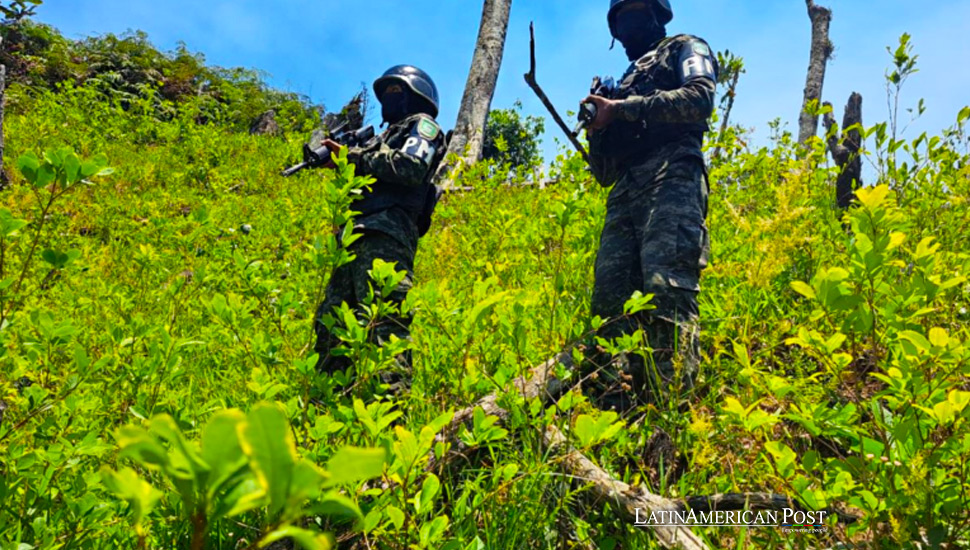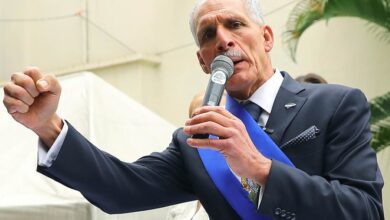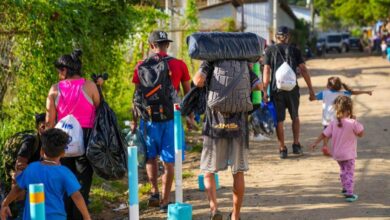Honduras’s Intensified Drug Battle Revealed

In the first quarter of 2024, Honduran forces seized over 2.9 million coca plants and 1,377 kilograms of cocaine, highlighting a persistent drug war that mirrors the broader challenges faced by Latin American nations in curbing narcotics trafficking.
In an unprecedented crackdown, the Honduran military has confiscated more than 2.9 million coca leaf plants and 1,377 kilograms of cocaine in the first three months of 2024, underscoring a significant stride in the nation’s ongoing battle against drug trafficking. This operation reflects a broader regional struggle, where countries across Latin America are grappling with the pervasive issue of narcotics production and smuggling.
Concerning Shift in Honduras
The discovery of coca leaf plantations in Honduras back in April 2017 marked a concerning shift for the country, traditionally viewed as a transit point rather than a producer of narcotic substances. Situated in the mountainous regions of Olancho in eastern Honduras, these plantations signify a growing trend of domestic drug cultivation within the country, echoing the challenges faced by neighboring nations in Latin America.
Apart from coca plants, Honduran forces also eradicated substantial quantities of marijuana, totaling 418,900 plants, and seized over 1,700 kilograms of marijuana and numerous firearms and ammunition in their efforts to dismantle the drug trade infrastructure.
The statistics from Honduras are part of a larger narrative that encompasses Latin America’s struggle against drug trafficking and production. Countries like Colombia, Peru, and Bolivia have long been at the forefront of this battle, with vast land under coca cultivation. The situation in Honduras indicates that the drug trade is not only a South American issue but also a significant concern for Central American nations.
Honduras’s strategic location has made it a critical transit point for drugs, particularly cocaine, destined for the United States. Drug traffickers exploit the country’s geography, using light aircraft and fast boats to transport narcotics. This has prompted Honduran authorities to intensify their counter-narcotics operations, including land, air, and sea patrols, to curb the flow of drugs through their territory.
Troubling Trends
The scale of drug seizures in Honduras reflects a troubling trend in the region. For instance, in 2023, Honduran forces confiscated 4.7 million coca leaves, 561 kilograms of cocaine, and a staggering 107.7 tons of marijuana. These figures not only highlight the vast quantity of narcotics passing through the country but also suggest a shift towards Honduras becoming a processing hub for drugs, particularly cocaine.
The Honduran government’s response to this escalating drug trade includes the implementation of a “drug shield” strategy in 2014 aimed at reducing the influx of South American narcotics. This multi-faceted approach involves air, maritime, and land operations, with the air shield being managed solely by Honduras and the maritime shield supported by the United States, particularly in the Caribbean waters adjacent to Honduras.
On land, the National Police, Military Police of Public Order, and other institutions are actively involved in the drug shield operations, conducting extensive patrols, checkpoints, and saturation operations to disrupt the activities of drug trafficking networks.
Regional Challenges
The Honduran efforts to combat drug trafficking resonate with the broader challenges faced by Latin American countries in addressing the complex dynamics of the narcotics trade. Nations like Colombia have implemented extensive coca crop substitution programs, while Mexico battles both drug production and the violent cartels controlling the trade. These regional efforts underscore the necessity of a coordinated, comprehensive approach to counter the deep-rooted drug trade affecting Latin America.
Moreover, the involvement of international cooperation, particularly with the United States, highlights the global nature of the drug problem and the need for cross-border strategies to combat drug trafficking and production effectively.
Also read: The Hidden Truths in Honduras Prison Riot
The significant drug seizures in Honduras during the early months of 2024 reflect not only the country’s intensified efforts to curb drug trafficking but also the pervasive challenge facing Latin America in dealing with narcotics production and smuggling. This situation underscores the importance of regional and international collaboration in addressing the complexities of the drug trade, which continues to impact the socio-economic and political landscape of Latin America. As countries like Honduras confront these challenges head-on, the collective action and strategy of Latin American nations will be crucial in stemming the tide of narcotics that continues to plague the region.





